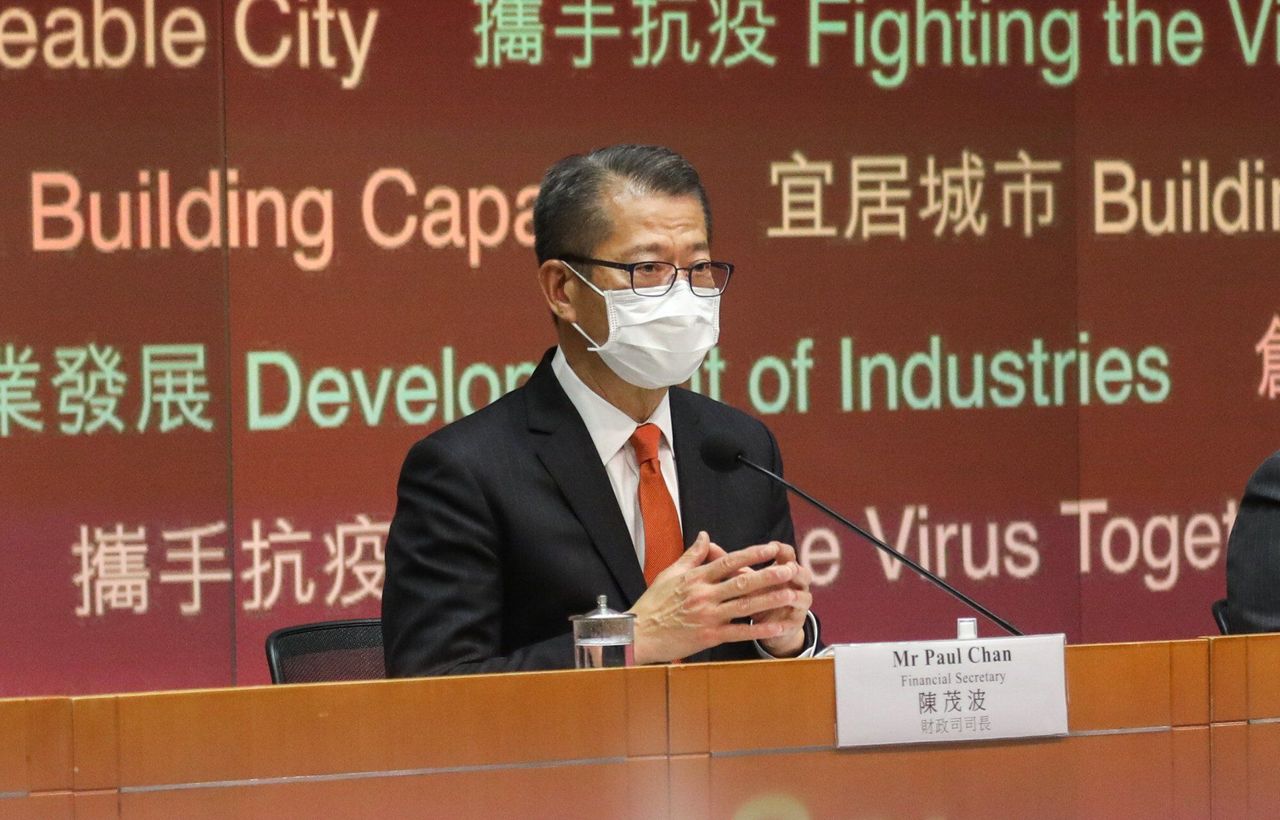Hong Kong News

Property owners, multinational firms face more taxes in Hong Kong
Hong Kong’s finance chief has identified new sources of government income by hitting multinational companies and local owners of pricey properties with more taxes, a move analysts say is the only available option amid an economic downturn.
In his latest budget, Paul Chan Mo-po also made it clear that it was not the appropriate time to revise the rates of profits and salaries tax – the government’s major sources of revenue – as people were generally under “considerable financial pressure” because of the coronavirus pandemic.
Confirming an earlier Post report, the financial secretary revealed that owners of multiple pricey properties in Hong Kong would pay more tax and lose some concessions in two years, as the government planned to revise the property tax system – the first time since 1995.
 Property owners will be able to apply for tax rebates on just self-occupied home.
Property owners will be able to apply for tax rebates on just self-occupied home.
From 2023-24, owners of residential properties will be able to apply for tax rebates – where applicable – for one self-occupied home only.
Landlords enjoyed rebates for all their premises under previous concessions. The latest arrangement will save the government HK$3.1 billion (US$397 million) on rate concessions.
A progressive system will also be introduced by 2024-25 under which tax rates will rise along with properties’ rateable value – calculated as 5 per cent of a home’s annual rental value.
Properties with a rateable value of less than HK$550,000 (US$70,000) will be taxed at the current rate of 5 per cent. The tax rate will jump to 8 per cent for the next HK$250,000, and to 12 per cent for any amount over HK$800,000.
Chan said he expected that only properties charged over HK$46,000 a month – about 42,000 in the city – would be affected, and that government revenue would increase by HK$760 million a year.
“This can better reflect the ‘affordable users pay’ principle … but most of the middle class will not be affected, as we have compared the rent in Taikoo Shing, Kornhill,” he said, referring to some midscale estates on Hong Kong Island.
For this year, owners of an estimated 3 million residential properties will still benefit from a rate concession, with the tax assessed by the Rating and Valuation Department on each home discounted by HK$1,500 in each of the first two quarters of 2022, and by HK$1,000 in each of the remaining two.
Another major income source for the government will come from multinational corporations based in Hong Kong, with plans to introduce a domestic minimum top-up tax of 15 per cent on these firms from 2024-25, to safeguard the city’s taxing rights under international tax reforms agreed last year.
A government source said 200 multinational corporations were currently in the city, but some already paid more than the 15 per cent rate. The new tax was expected to bring in HK$15 billion in revenues a year.
Chan told a press briefing later on Wednesday that its status as an international financial centre was very important to Hong Kong, but he said he believed the imposition of the minimum top-up tax would not have much effect on large multinationals.
The new tax followed an agreement made among more than 130 nations under the umbrella of the Organisation for Economic Cooperation and Development (OECD) in 2021.
The OECD framework on Base Erosion and Profit Shifting (BEPS) contains “two pillars”, the first of which aims to make multinationals – particularly American technology giants such as Google, Apple and Facebook – pay taxes in countries where they make their profits and not just where they are headquartered.
Under the second pillar, a minimum corporate tax rate of 15 per cent will be applied on a country-by-country basis to ensure all multinationals pay at least some tax in their home countries.
This will reduce their ability to shift profits to low-tax jurisdictions where they may have set up regional headquarters.
 Financial Secretary Paul Chan Mo-po speaks during a press conference
after the delivery of the 2022-23 budget in Central Government Offices,
Tamar, on Wednesday.
Financial Secretary Paul Chan Mo-po speaks during a press conference
after the delivery of the 2022-23 budget in Central Government Offices,
Tamar, on Wednesday.
Professor Terence Chong Tai-leung, an economist at Chinese University, said the government still had considerable reserves so there was no urgency to increase revenues.
“And to avoid an impact on the general public, these taxes seem to target wealthier property owners and multinational corporations, which is a better approach,” he said, adding the review in rates also only targeted the rich ones, and the effects on the middle class should be small.
Chan said it was expected that the city’s fiscal health would remain in the black compared with a previous forecast of a HK$101.6 billion (US$13 billion) deficit, due to higher revenue from stamp duty and land sales.
Among the relief measures for residents is a new tax cut starting from this financial year for those who rent their homes while also having to pay salaries tax or tax under personal assessment. The deduction is capped at HK$100,000 a year per person, and is projected to cost HK$3.3 billion in government revenue.
Other one-off measures to alleviate residents’ financial strain include a salaries tax cut of up to HK$10,000 for more than 2 million taxpayers.
For property buyers, Chan said that in light of an anticipated rebound in housing supply, the government-backed Hong Kong Mortgage Corporation would raise the ceiling on first-home mortgages, enabling buyers to borrow up to 90 per cent of a completed property’s value.
The loans would be capped at HK$10 million, up from HK$8 million previously. The cap for those seeking to borrow 80 per cent of the property’s value will be raised from HK$10 million to HK$12 million.











